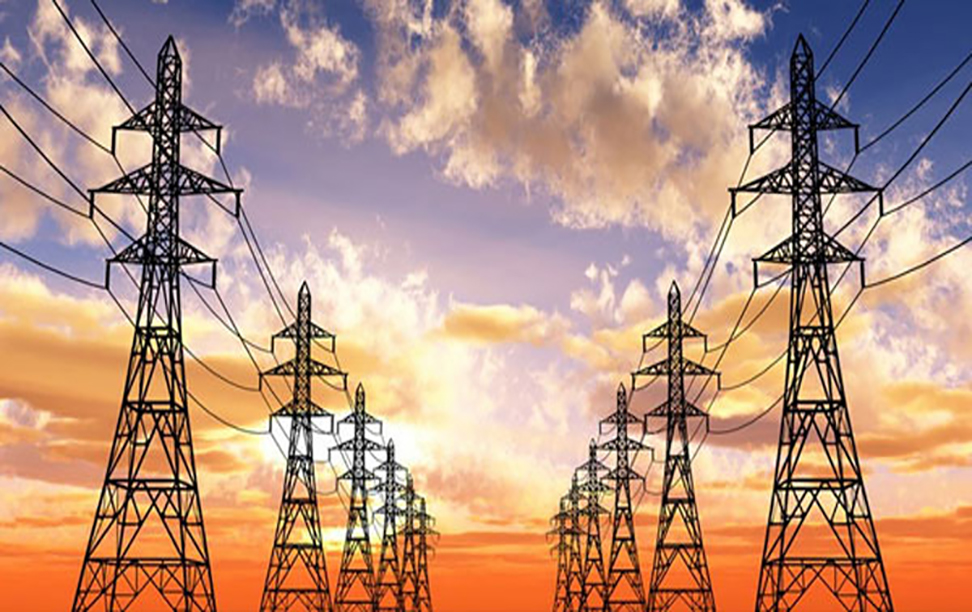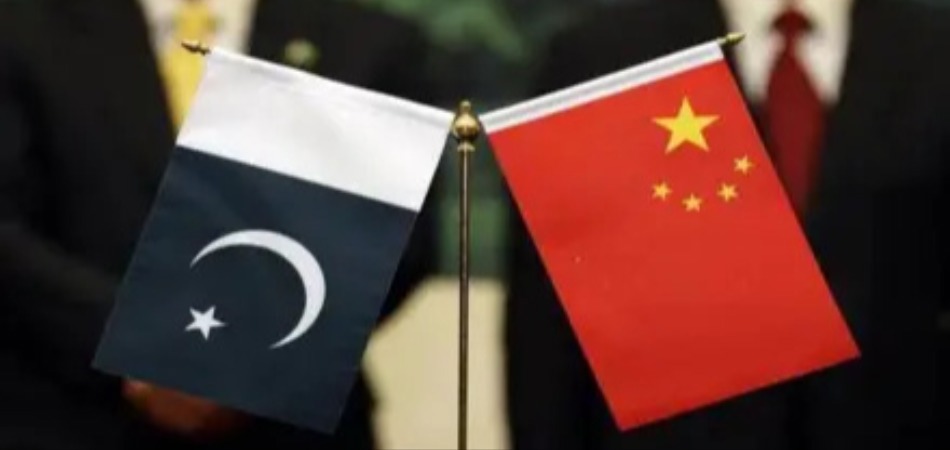Government launches extensive crackdown on power theft

MG News | November 02, 2023 at 12:20 PM GMT+05:00
November 02, 2023 (MLN): The government is launching an extensive crackdown on power theft, a widespread issue in Pakistan that drains the national grid and adds to the country’s economic woes.
Electricity theft, a pervasive issue in Pakistan, results in an annual loss of nearly a billion dollars.
In Lakhneke, a village in Pakistan’s eastern Punjab province, tangled wires hang from a power line, a tell-tale sign of electricity theft, Bloomberg reported.
These illegal connections are now the target of an extensive crackdown as the government tries to steer the economy out of crisis.
Theft helps keep Pakistan's power sector mired in debt, struggling to upgrade an aging electricity grid network prone to frequent blackouts.
This has weighed on an economy already grappling with galloping inflation, weakening currency, and the aftermath of last year's devastating floods.
Indeed, a promise to reform the industry was key to securing a $3 billion bailout from the International Monetary Fund earlier this year.
The measures, however, risk stoking widespread public anger in a country already on edge following the ouster and arrest of Imran Khan, the former prime minister and national cricket hero.
Power theft is pervasive throughout emerging markets, but Pakistan ranks among the worst in Asia.
Around 17% of all electricity distributed in the country ends up lost or pilfered, according to the National Electric Power Regulatory Authority, and the rate is as high as 37.5% in some areas.
The government says electricity theft cost the country Rs237bn ($842 million) last year, about half the revenue generated by the nation's only private distribution company K-Electric Ltd.
Pakistanis are dealing with inflation of around 30%, the highest in Asia. Surging electricity prices, up around 75% from a year earlier, triggered street protests earlier this year in cities including Karachi, Lahore, and Peshawar, posing a challenge to the caretaker government in charge until national elections early next year.
Resentment ran high in Lakhneke during a recent anti-theft drive as employees of Lahore Electric Supply Company, the local power distribution company, scaled buildings in search of illegal connections which locals call “kunda.”
Finding such connections, workers began snipping wires, pulling and ripping them from the ground. Some villagers, infuriated by being accused of stealing, began shouting. Police arrested a few others.
Electricity users in Lakhneke, with around 12,000 registered voters according to local officials, owe Rs9.3m in unpaid bills to LESCO, said Chaudhry Muhammad Aftab, subdivisional officer at LESCO in nearby Mustafabad, Kasur.
“We’re giving them relief, but people still steal,” he said, adding that theft was being carried out by the rich and poor alike. “We won’t rest until they stop stealing electricity.”
Some villagers criticized LESCO for mismanagement.
“I’m not guilty!” said 40-year-old Lakhneke resident Khalida Bibi, whose meter had been removed because of missed payments, Bloomberg added.
She said she hadn’t received any bills to her home since 2019 when she got a stay order connected to an earlier, unpaid balance. “How can I be guilty? The electricity people didn’t tell us what needed to be done,” she said.
The drive in Lakhneke was just one of many carried out throughout the country in the past two months as officials stepped up their message: electricity is a commodity for which people must pay.
Backed by police, officials have removed the meters of users who’ve defaulted numerous times. In cases where entire villages were found stealing, it’s taken the main power transformer, leaving neighborhoods in the dark until bills are paid.
The government said it’s recovered Rs30bn and made more than 18,000 arrests since mid-September.
On a recent day in Aftab’s office, customer after customer arrived with complaints about their bills, most with several months of unpaid balances.
One man, Amanat Ali, said he couldn’t afford his latest bill: Rs44,000 ($157) for two months. That’s more than the average monthly salary for a working-class person.
“We don’t steal. The bill we get is too much,” said the 62-year-old.
The IMF has pushed the government to do away with subsidies that would previously have provided some relief, in hopes of forcing officials to overhaul the governance of the power sector.
Pakistan has been selling electricity and gas at below cost for decades to placate voters.
In 2021, Khan unexpectedly reduced and froze fuel prices, suspending an IMF agreement and costing the nation $350m a month.
Such low pricing and subsidies, in addition to rampant power theft, have all contributed to ballooning debt across the power sector.
This isn’t Pakistan’s first attempt at stopping power theft. Major anti-theft drives of the past have failed because state-owned power distribution companies (DISCOs) like LESCO struggled to keep up enforcement efforts as government support waned, said Tahir Basharat Cheema, former managing director of the Pakistan Electric Power Company.
“Unless the DISCOs start working automatically on their own and help comes whenever asked, things cannot be sustained over a longer time,” he said.
Analysts say politicians have often turned a blind eye to power theft rather than risk the wrath of voters. Powerful officials have at times discouraged police and distribution companies from pursuing certain cases of power theft, according to Rehan Jawed, a Karachi-based industrialist and power sector analyst.
“It’s always about political interference,” he said.
Some DISCO staff may have facilitated power theft, said Mujahid Islam Billah, a member of the board of directors for LESCO, citing the difficulty of putting kunda connections in place without technical help. Some officers started overbilling to make up for theft, he said. “It was a vicious cycle.”
Critics say the government should privatize the sector to give distribution companies an incentive to cut down on losses.
“The electricity distributors are not competing with each other. They have a territory marked, they do not care if the electricity distributed is efficient or not,” said Khalid Waleed, a research fellow at the Sustainable Development Policy Institute.
The government is considering leasing state-owned utility companies on long-term contracts after earlier discussions on possible privatization were shelved.
Muhammad Ali, the caretaker Minister of Energy, Power, and Petroleum, said the government was looking at a range of measures to improve governance, including hiring private sector officials for the boards and top positions of distribution companies.
Officials are also going after power sector workers colluding in power theft, he said.
There are some questions over whether the crackdown will last, since it was initiated by a caretaker government with a temporary remit. National elections are expected to be held in late January.
For now, LESCO officer Aftab says he’s allowing customers to break down payments into smaller amounts to be paid over time.
“It’s easy to sympathize with poor people, there’s no doubt about it,” he said as he scrawled on some unpaid bills: “Installments, installments, installments” Bloomberg added.
Copyright Mettis Link News
Related News
| Name | Price/Vol | %Chg/NChg |
|---|---|---|
| KSE100 | 138,597.36 256.32M | -0.05% -68.14 |
| ALLSHR | 85,286.16 608.38M | -0.48% -413.35 |
| KSE30 | 42,340.81 77.13M | -0.03% -12.33 |
| KMI30 | 193,554.51 76.19M | -0.83% -1627.52 |
| KMIALLSHR | 55,946.05 305.11M | -0.79% -443.10 |
| BKTi | 38,197.97 16.53M | -0.59% -225.01 |
| OGTi | 27,457.35 6.73M | -0.94% -260.91 |
| Symbol | Bid/Ask | High/Low |
|---|
| Name | Last | High/Low | Chg/%Chg |
|---|---|---|---|
| BITCOIN FUTURES | 117,670.00 | 121,165.00 117,035.00 | -1620.00 -1.36% |
| BRENT CRUDE | 69.23 | 70.77 69.14 | -0.29 -0.42% |
| RICHARDS BAY COAL MONTHLY | 96.50 | 0.00 0.00 | 2.20 2.33% |
| ROTTERDAM COAL MONTHLY | 104.50 | 104.50 104.50 | -0.30 -0.29% |
| USD RBD PALM OLEIN | 998.50 | 998.50 998.50 | 0.00 0.00% |
| CRUDE OIL - WTI | 66.03 | 67.54 65.93 | -0.20 -0.30% |
| SUGAR #11 WORLD | 16.79 | 17.02 16.71 | 0.05 0.30% |
Chart of the Day
Latest News
Top 5 things to watch in this week
Pakistan Stock Movers
| Name | Last | Chg/%Chg |
|---|
| Name | Last | Chg/%Chg |
|---|




 Weekly Forex Reserves
Weekly Forex Reserves